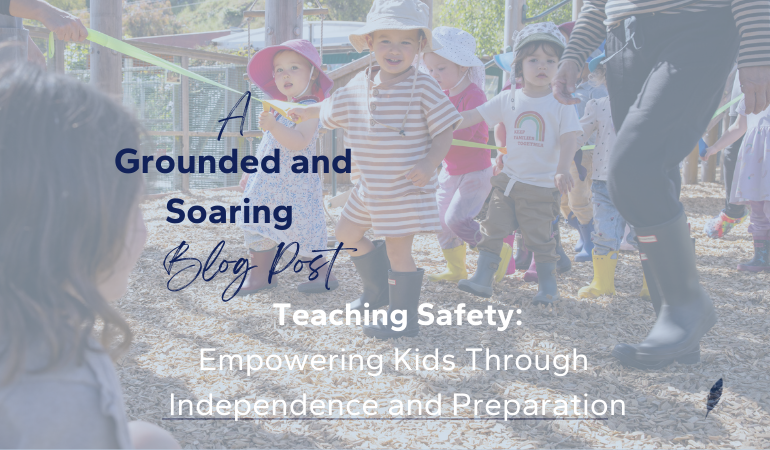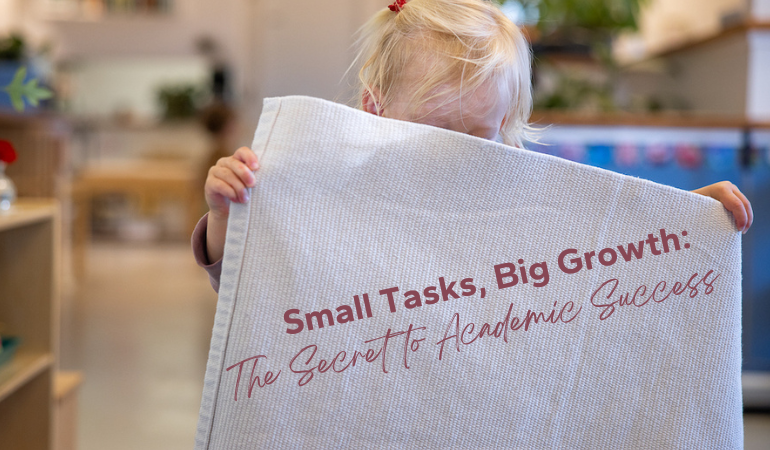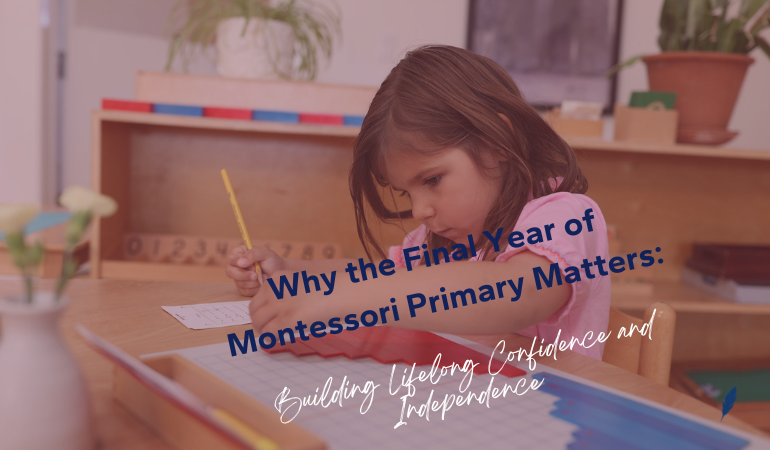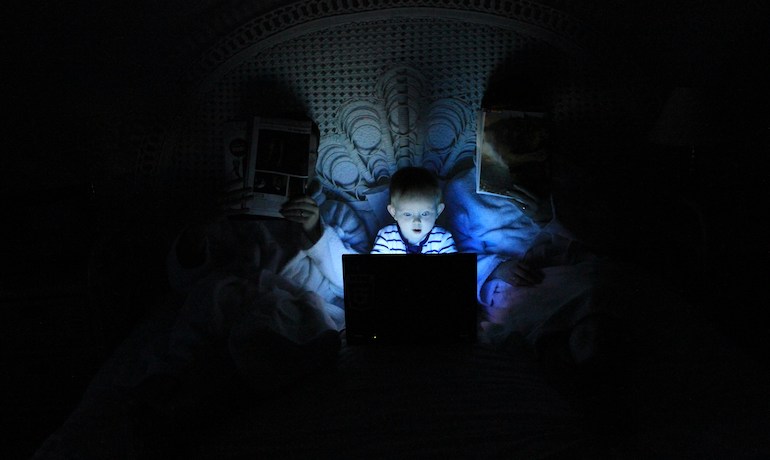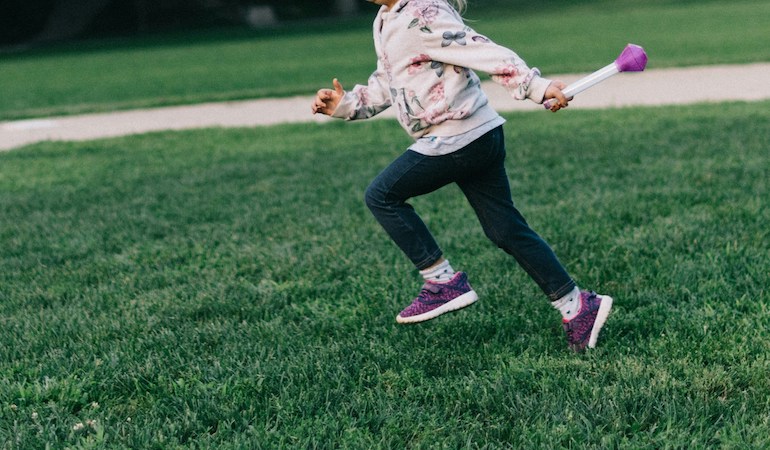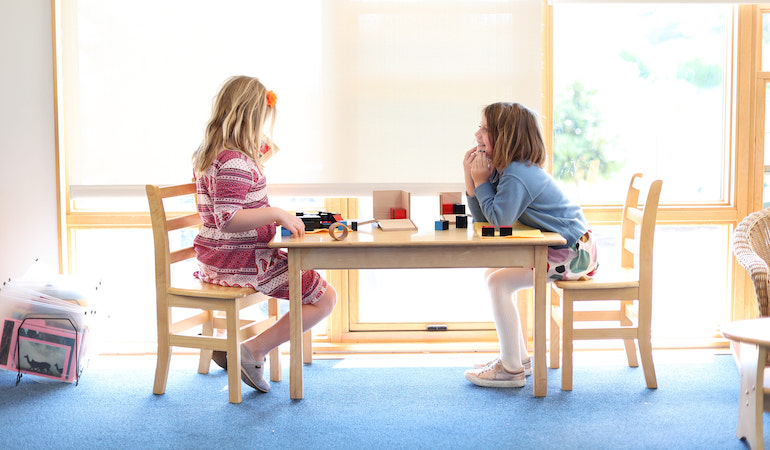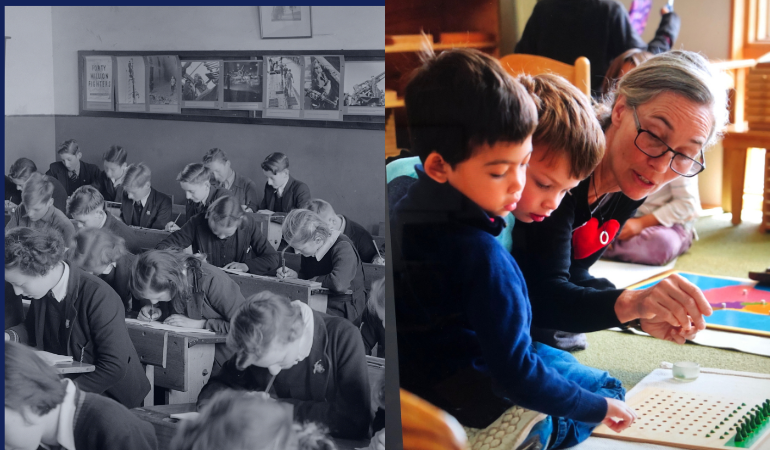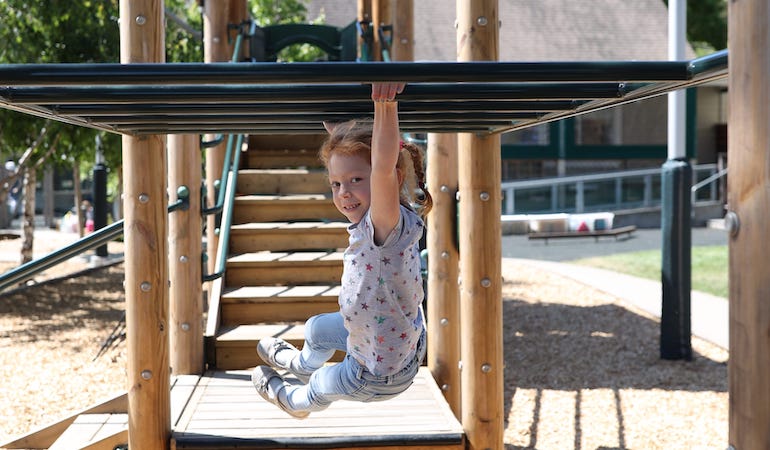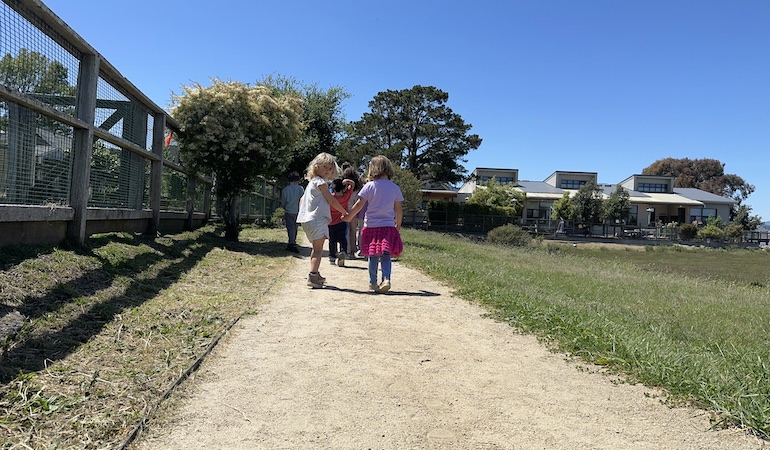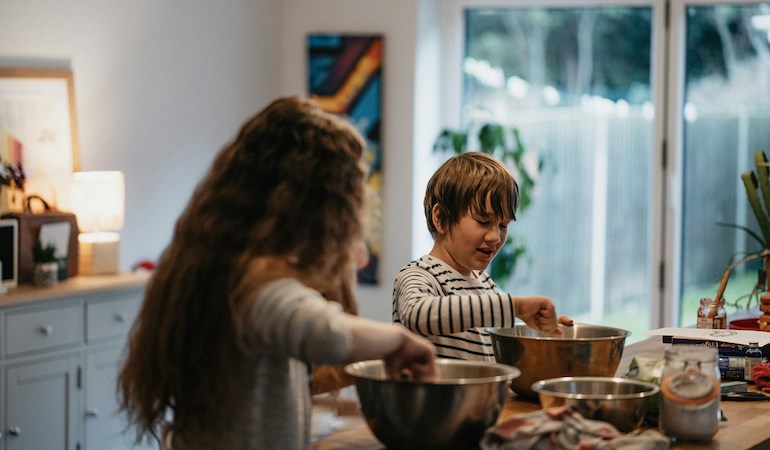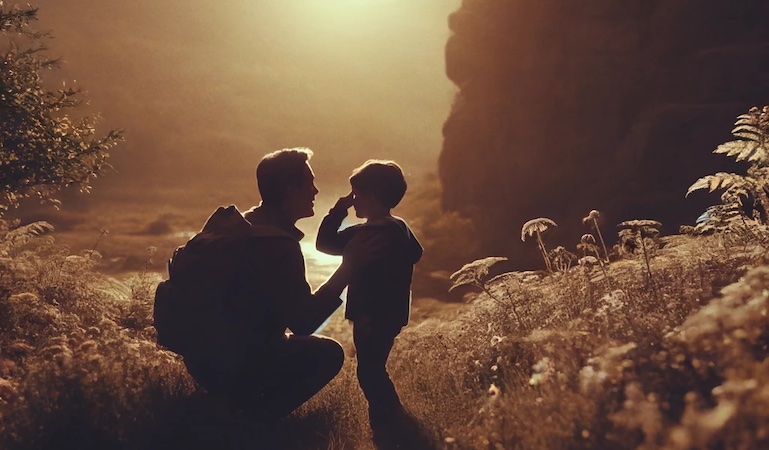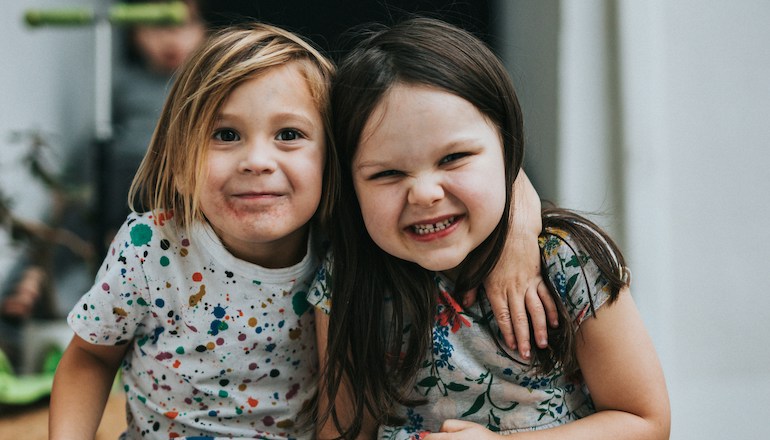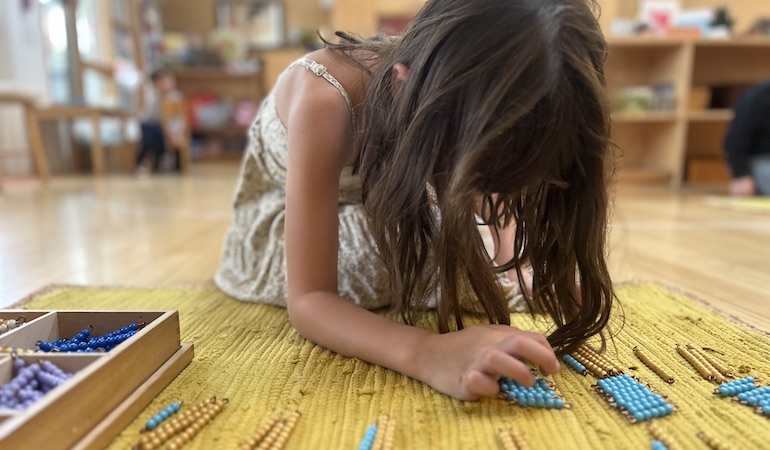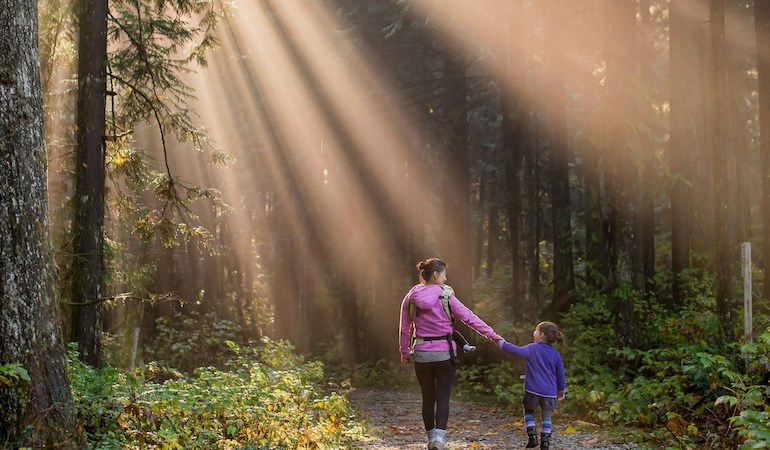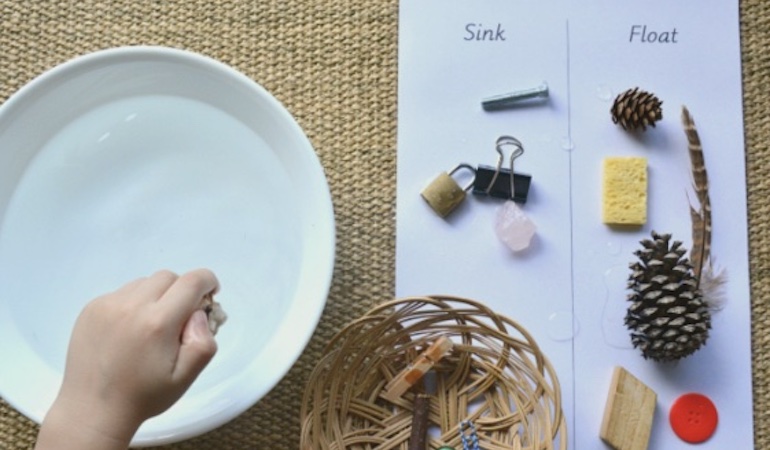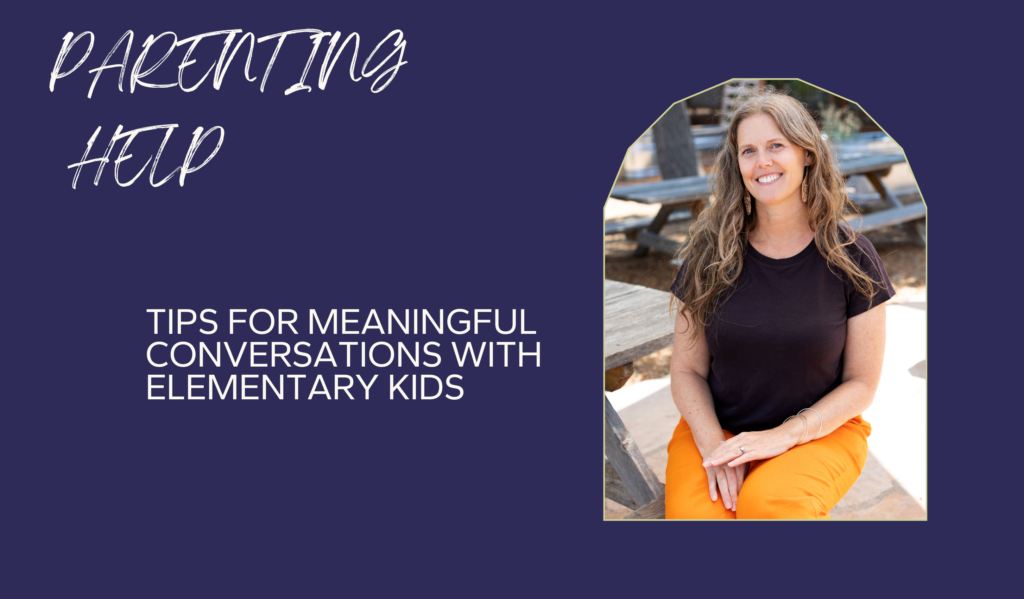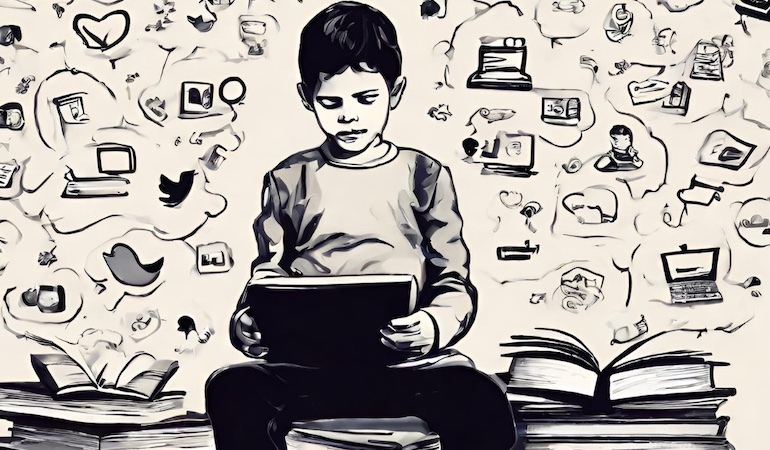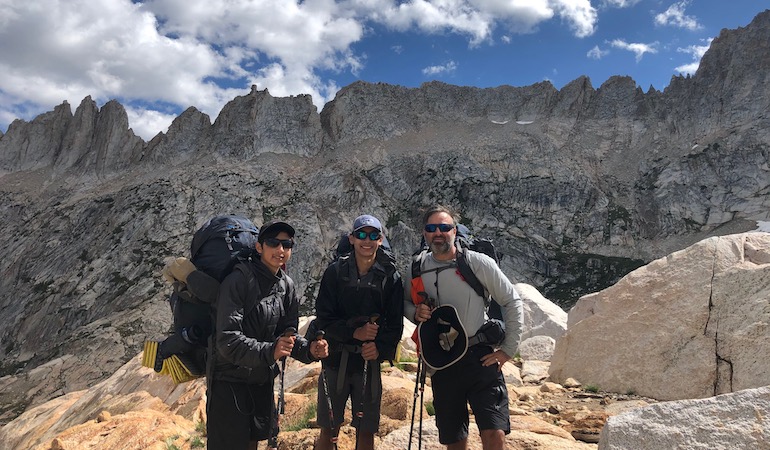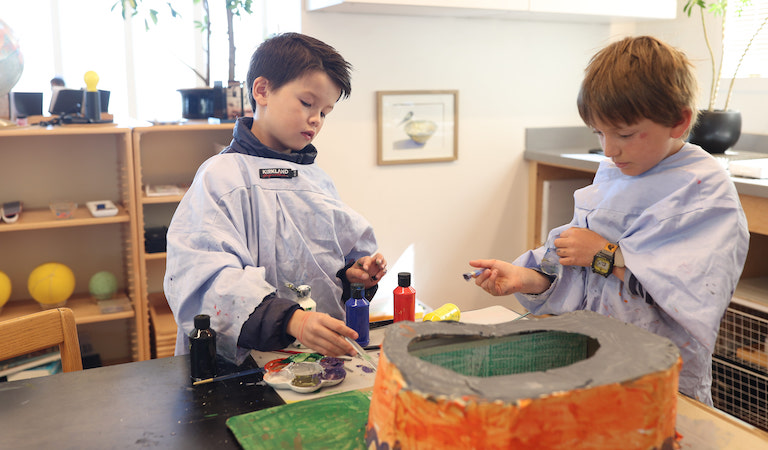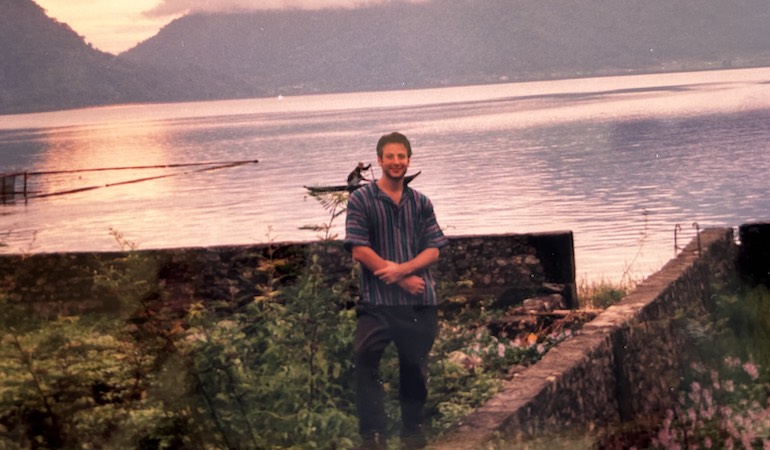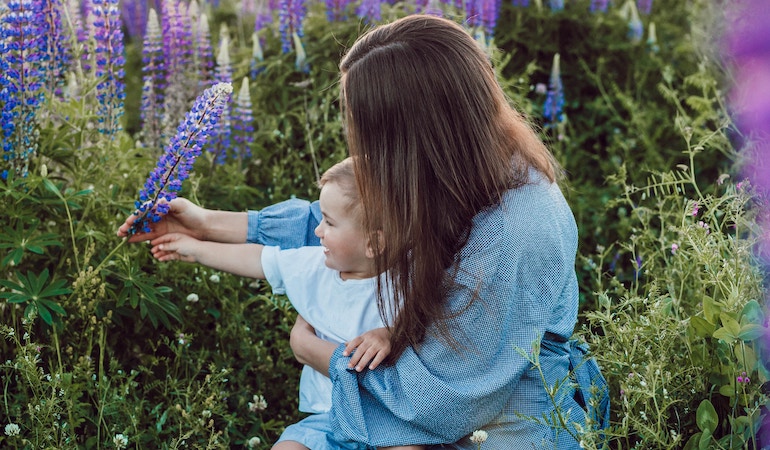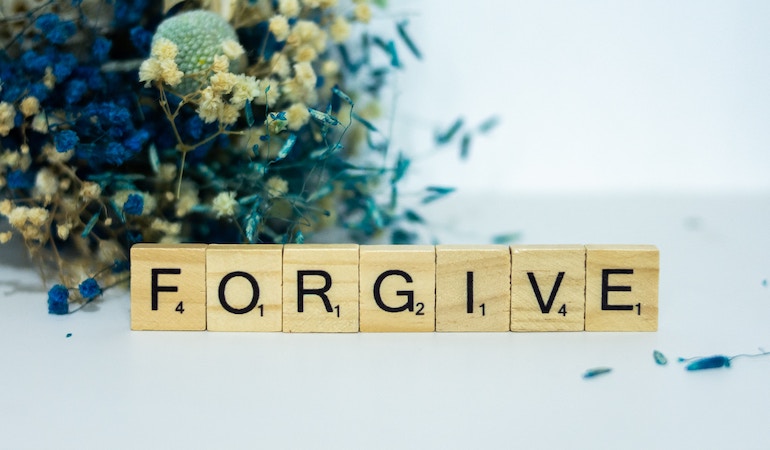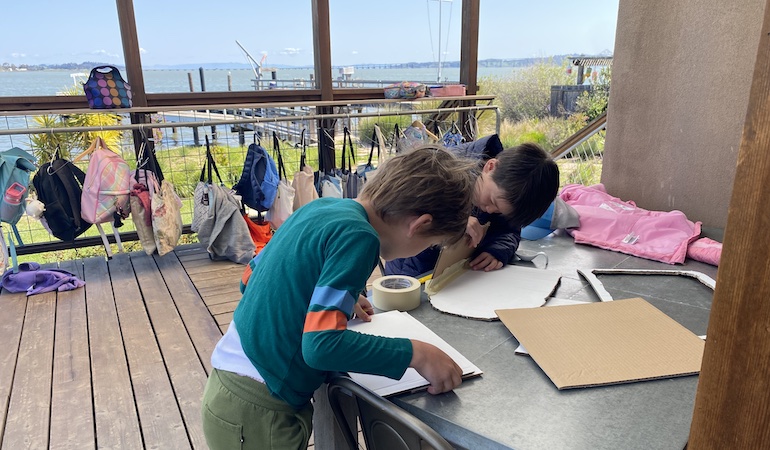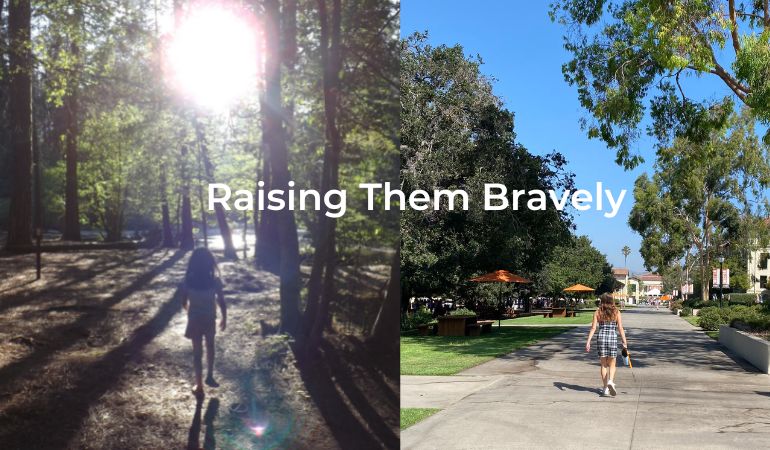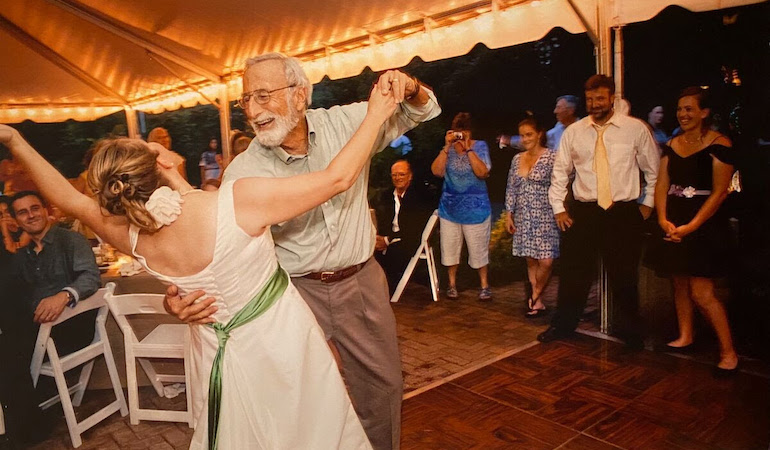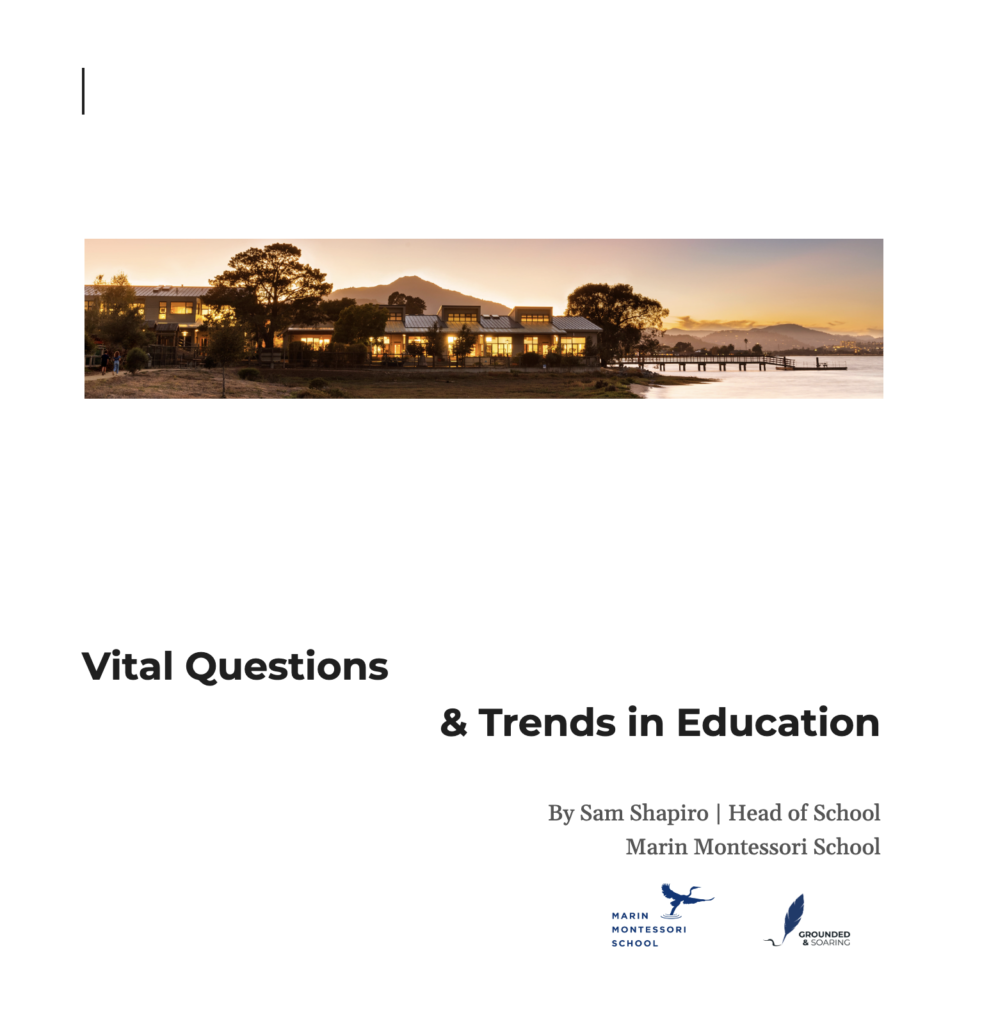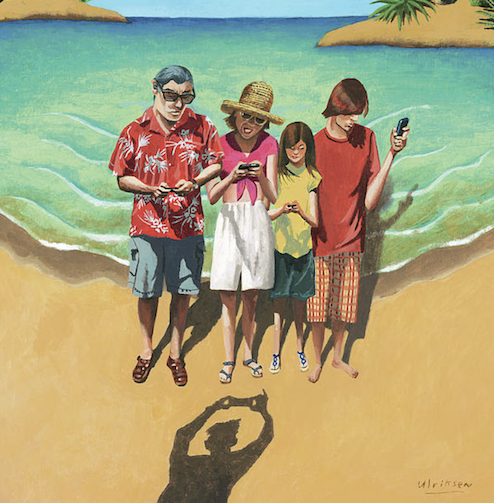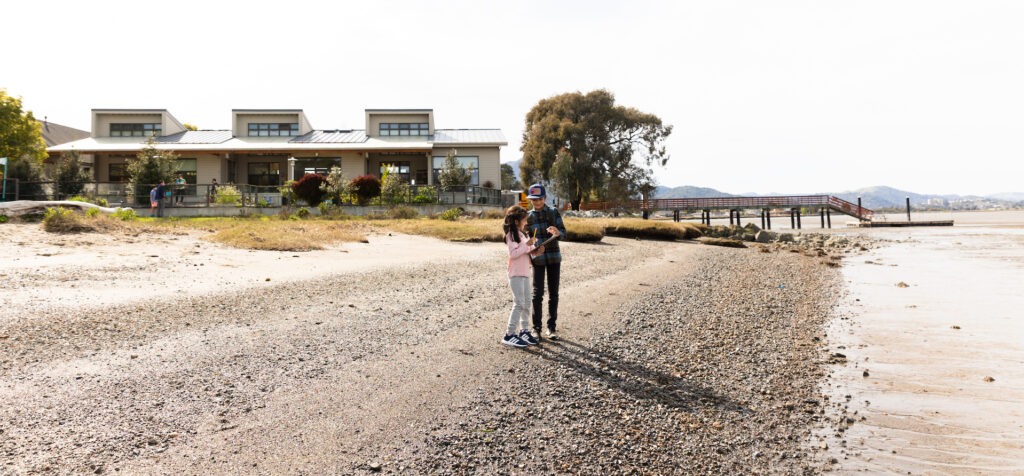Marin Montessori faculty and administrators are equal part experts and investigators. Read their latest questions and discoveries about how best to prepare healthy, inquisitive, capable children to thrive in an unscripted world.
Teaching Safety: Empowering Kids Through Independence and Preparation
In December, our community faced an unexpected challenge when a 7.0 magnitude earthquake triggered tsunami warnings. Amid the uncertainty, our students and staff exemplified calm and resilience, turning a potential crisis into a testament to our Montessori principles. This experience underscores the importance of fostering a culture of trust, preparation, and independence. To further support our community, we’ve developed Montessori-aligned safety tips tailored to each developmental stage, empowering children to navigate challenges with confidence.
Small Tasks, Big Growth: The Secret to Academic Success
In Montessori, simple activities like folding a cloth are more than just tasks—they’re the building blocks for a child’s future academic and personal success. These moments teach concentration, resilience, and problem-solving, laying the groundwork for skills like advanced mathematics and critical thinking.
Teaching Compassion Amid Conflict: Historical Lessons for Today’s Youth
In a polarized world, teaching kids empathy and courage is vital. Drawing on Rosa Parks and Maria Montessori, we model integrity and respect to guide the next generation toward peace and understanding.
Why the Final Year of Montessori Primary Matters: Building Lifelong Confidence and Independence
The three-year cycle of the Primary classroom culminates in what is often referred to as the kindergarten year. This final year is transformative. It’s a time when children apply the foundational skills they’ve been building since they were toddlers, step into leadership roles among their peers, and fully embrace the joy of learning independently.
Why Media Literacy Matters—and How Montessori Education Can Help
This distinctive and deliberate approach positions MMS as a bit of an outlier, giving our students the rare gift of time to think, question, and create without constant digital interference.
Eventually, though, we all leave the refuge and step into the digital media-saturated world.
How To Nurture a Positive Self-Image From the Start
Young children are innately curious about their own bodies and the people around them—and how we answer their questions matters. According to research, children start developing ideas about their bodies as early as age 3, making our early conversations especially important. As parents and educators, we have a responsibility to create a space where body talk is honest, kind, and rooted in appreciation.
Make It Beautiful: Unlocking the Power of Montessori’s Prepared Environment
What’s clear to me now is that every environment shapes us—and the environments we create for our children can either amplify or fail to nurture their natural tendencies.
Why Steve Jobs’ Motto Matters Even More Today
In an era of AI and rapid change, thinking differently is more important than ever for education. Explore four ways to break conventional assumptions and better serve our children’s futures: multi-age classrooms, viewpoint diversity, hands-on learning, and honoring individual potential. Discover how these approaches can combat student disengagement and support mental health while preparing kids for an evolving world.
The Lost Art of Play: Addressing Childhood Anxiety in the Digital Age
Unstructured play in a curated, prepared environment gives children the opportunity to “develop what psychologists call an internal locus of control,” Gray explains, “which is an internal sense that I’m competent to take charge of my life. Something can happen to me, and it’s not a disaster. I can take care of it.”
Walking Their Own Path
We as parents can help pave the path our children will walk down, but we can’t control the way they maneuver that path. They may barrel down the road or cautiously avoid some of the stones we hoped they would fully embrace. They may decide to not even take our path at all, choosing instead to tromp out into the unknown with no clear destination. Either way, the path ahead offers them endless opportunities to display and reveal their colorful personalities to the world.
Unlocking Child Independence: A Home Guide for Parents
Ultimately, fostering independence is about more than just practical skills—it’s about cultivating a mindset. By setting up our homes to support autonomy, setting clear expectations, and thoughtfully guiding our children through challenges, we lay the groundwork for a lifetime of self-reliance and resilience.
Why Teens Crave Risk (And How to Encourage Healthy Adventures!)
A parent’s, school’s, and society’s job then is to create environments filled with opportunities, experiences, and guidance that harness that curiosity and drive toward independence at each developmental stage (or “developmental plane” as it’s referred to in Montessori parlance).
Raising Happy Kids: The Power of Embracing Their Natures
When we learn to accept, we offer a priceless gift. After all, our children yearn for our love and elated acceptance. Can we give them this? Even just a single sincere moment can last a lifetime.
Why “I’m Sorry” Isn’t the End of the Story
Remember the days when “I’m sorry” seemed to magically mend any mishap? Turns out, conflict resolution is more complex, especially for the younger crowd.
Completing the Cycle: How to Build Leaders, Learners, and Leaners-In
As an experienced Primary Guide and a parent myself, I understand parents’ desire for educational paths that not only provide academic excellence but also nurture essential life skills.
The Happiness Path is the Meaningful Path
While happiness is ephemeral and dependent on circumstances meeting our wants, meaning connects us to values, relationships, and histories that are deep-rooted.
Raising Curious Kids: A Handful of Hands-On Activities
In a world that’s becoming increasingly complex, the task of guiding young children can feel both crucial and challenging.
Discipline That Works: Modern Parenting with Montessori
Grounded and Soaring is excited to partner with Cloud Montessori where a version of this post was originally published.
Tips for Meaningful Conversations with Elementary Kids
From the time our children are born, they start the journey of becoming more and more independent of us. They separate from our bodies. Then they learn to eat food. They learn to move. At each of these milestones, they are becoming more physically independent.
The Perfect Chair or How to Parent While Sitting
It seemed a minor detail to me – which chair I would sit in on the rare occasion when the preschool classroom allowed me a brief moment of rest. But I tested out the chairs anyway and chose the sleek, rectangular-backed one with the soft cushion. The chair was placed in its spot on the back wall, where it has remained.
Developing Readers and Writers in a Twitterized World
In an era of digital sound bites, where Twitter’s 280 characters often define the boundaries of expression, there’s a pressing concern about the evolving nature of communication. The onslaught of condensed digital communication modes has engendered an environment where the depth of language and profound conversations seem to be ebbing.
The Beauty and Power of Focus
A quality I cherish about summer is the way time expands for our family: we’re less rushed, less tightly scheduled, and less everything that makes the day-to-day feel overwhelming at times.
Growing Creative Thinkers
In the last couple of months, I’ve been able to connect with a number of my own past students and graduates of Marin Montessori School…
Toward a Shared Humanity: Getting Our Kids Beyond Their Bubbles
At age twenty-one, and five days after I graduated from college, I moved to Sumatra, Indonesia. Sent by the organization “Volunteers in Asia,” I spent the next year focused on educating Indonesian youth on HIV/AIDS prevention…
Five Ways to Clearly Communicate With Your Child
Grounded and Soaring is excited to partner with Cloud Montessori where this post was originally published. Cloud Montessori offers valuable advice for families eager to bring Montessori into their homes. It’s Time Using the phrase “It’s time” eliminates any question or option for your child when you need them to
Real Fears. Real Hope: eBook on Social Media, Mental Health, and Our Children
This April, I sent a series of posts to the Marin Montessori community that wrestled with some of the pressing issues of the day. We’ve now collected the posts into a single document that you can read and share at your leisure.
The Gift of Parental Forgiveness
First and foremost, forgiveness is an unburdening act of self-compassion; it makes us feel and live better.
What Happens When We Embrace the Human Tendencies
My three children are as distinct and beautifully themselves as any three human beings can be – and yet they undoubtedly developed along a nearly identical track, experiencing the same lurches and regressions at roughly the same stages of development.
What to Do When the School Doubts Set In
Most of us miss the first part of DeCartes’ most famous axiom. He actually said, “dubito, ergo cogito, ergo sum,” which translates, roughly, to “I doubt, therefore I think, I think therefore I am.”
Turns out that the first part is super important. To doubt is to ask questions that pressure-test assumptions and choices.
How To Give the Gift of Sleep
Most of the time, when a parent mentions that some undesirable behavior is going on with their young child, it has something to do with one of the child’s three basic physical needs, and if they are met and stable, or not. These are sleeping, eating, and eliminating – and chief among them is sleep.
Raising Them Bravely
The U.S. Department of Labor’s prediction that 65 percent of our children’s careers haven’t been invented yet seems even more relevant today: What will the world be like when our children step into it as adults?
Choosing Your Locus of Control
A few years before his cancer diagnosis, we had a birthday party to celebrate Perry, my dad. I had a moment of awe and admiration for the joyful, fulfilling life he had created and reached. I raised a glass and said to him, “Here’s to you, Pop. Congratulations on making your dreams into reality.” Without missing a beat as he raised his glass to his lips, he said, “Better to make your reality your dreams.”
Lessons from Chickens: How To Make Science Come to Life
We’re all scientists before we’re science students. When their natural curiosity is not cultivated, though, they can lose interest in the scientific principles that allow them to see their world differently.
It’s not their fault, of course.
Why Story?
Storytelling is in our DNA. As human beings, we evolved to tell stories as a way to convey emotion and share information. Storytelling is how we educate and entertain. It’s how we learn about our world and find meaning in it. More than anything, storytelling is how we connect with one another.
Vital Questions & Trends in Education
Like many aspects of our society, education is in a time of transformation. On my mind specifically are six urgent questions about the future of schools in our society. Though the answers to each aren’t always obvious, understanding the context and specifics of the questions is an important first step for us all…
How to Resist a Lure
We know things in relation to other things – we know tall in comparison to short, clean in comparison to messy. So why wouldn’t we compare what our children know to some standard of what they should be learning? After all, we worry they’re falling behind or, on the flip side, take pride in their ability to achieve beyond expectations. Comparison to a standard makes almost unimpugnable sense.
How to Navigate this Digital Revolution
When I saw this New Yorker cover several years ago I could not take my eyes off of it. As we live through our society’s digital-technological revolution, it symbolized, in playful yet somewhat dystopic imagery, the heart of a concern I was feeling—and still do to some degree.
The Power of Wonder
Cosmic Education inspires a rigorous academic pursuit of understanding. It’s not flimsy. It’s made of ore and stone, of science and art.
Tackling the Loneliness Crisis
This summer my younger sister and I took a beach walk. Even though we live only a few hours away from each other, we’d not seen each other in person in more than a year. During the walk she said, “…it just feels like the world is spinning off of its axis.”
Building Our Kids’ Resilience: Realistic Optimism
We are living through this disquieting time together. Should we expose ourselves all day to the 24-hour news cycle, then panic and paralysis will likely be our bedfellows. How can we stay current, while also role modeling for our children an energized and growth-mindset approach to these challenging times? How can we grow our children’s resilience, and our own?


